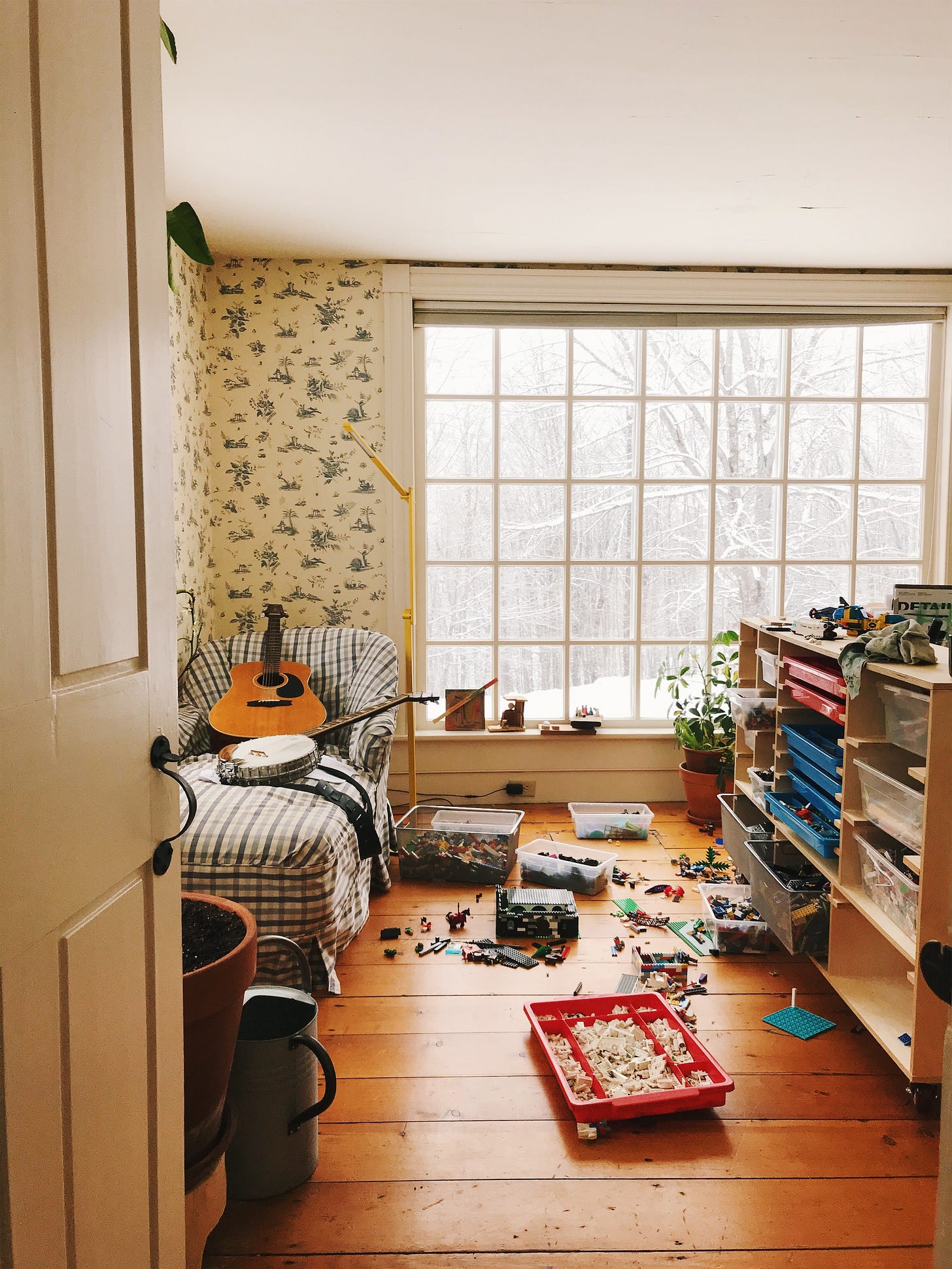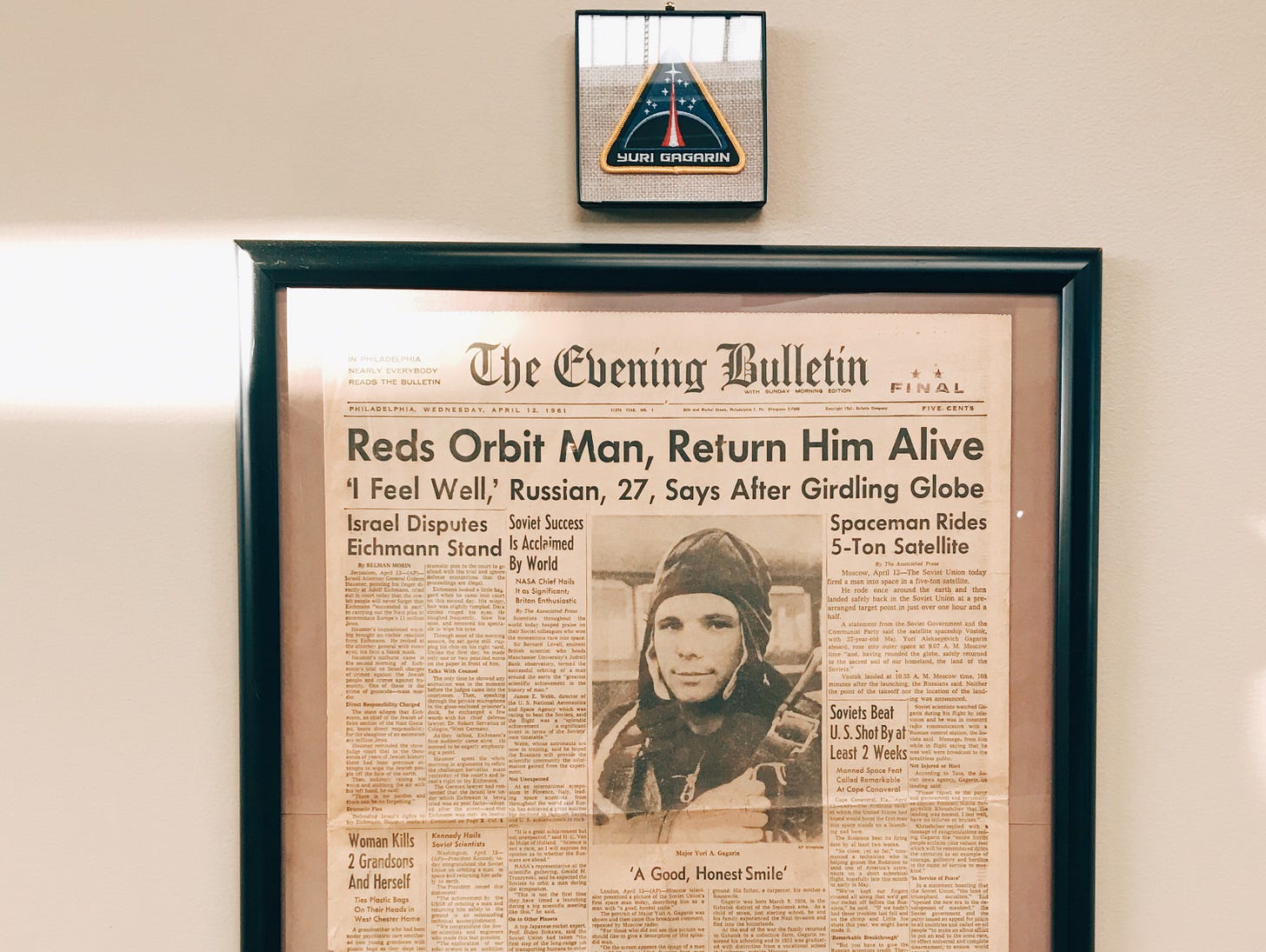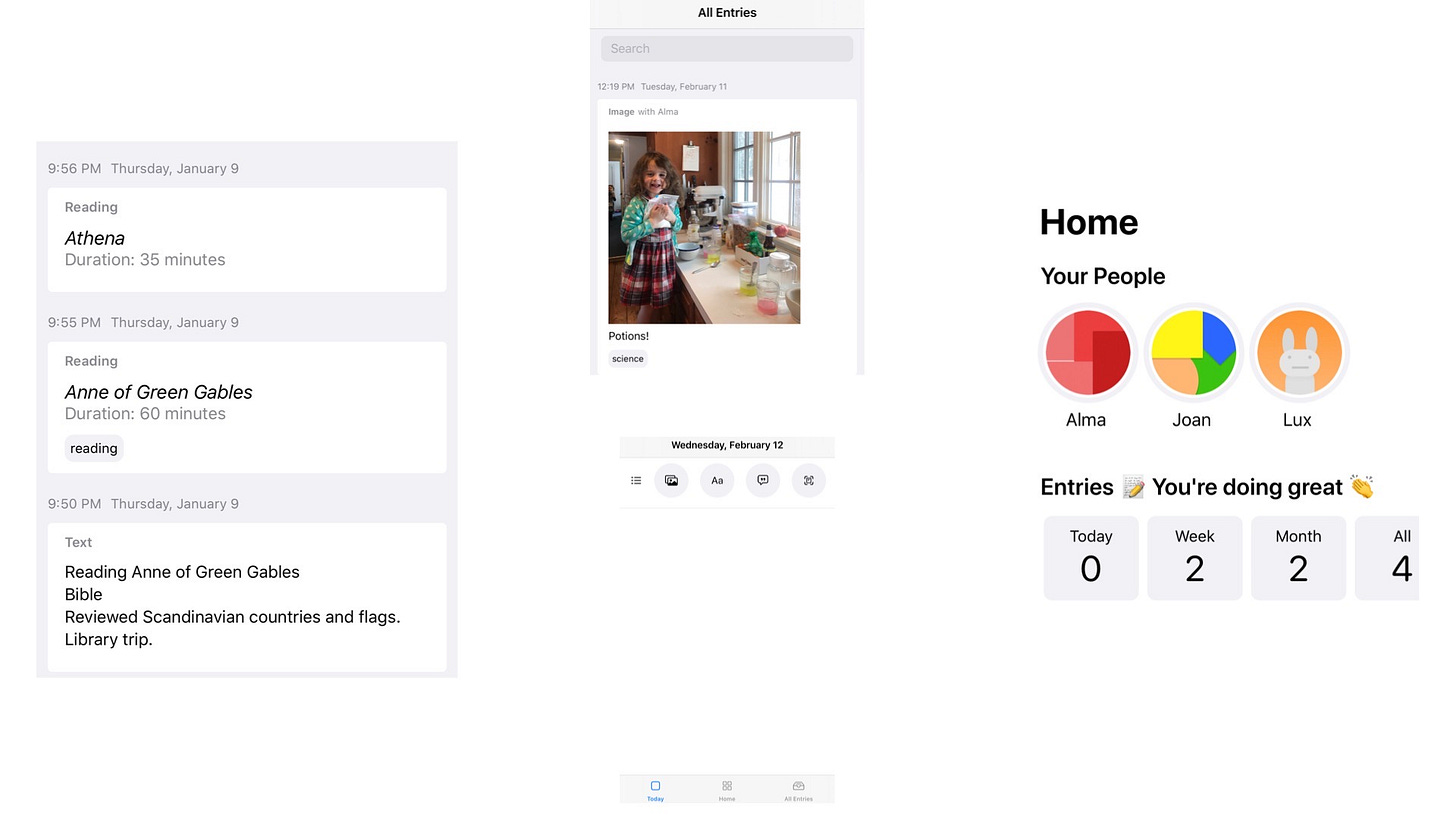Six Extraordinary Things

January nearly killed us with endless sickness. One child became well, another was felled. The mornings began with a chorus of quiet coughs. After a long up night with one child—me asking, “Do you want some water?” her a quiet “Sure,”— she ended up on antibiotics for pneumonia. I don’t think I’ll ever fulfill a prescription for antibiotics without sensing the shadow of the mothers before me who didn’t have that option. When an infection might have meant death.
Modern mother or not, caring for them and the mental burden of tracking their symptoms was totally consuming for me. I’m sure I gave it far more mental space that it needed, but there it is. If the kids did much by way of formal schooling during this time, I didn’t notice. Keeping linens and countertops clean, kleenexes relatively available, toast buttered, and Vitamin-C at the ready was all I could manage.
I write to you nonetheless! I have a hodgepodge of inspiration to share with you.
Bedtime Looms
The square looms from Harrisville Designs allow children to design and weave potholders—with their fingers. Every year this activity seems to get a rich two-week-period of attention in our house—corresponding to intense weather outside—and then is abandoned for something else. Fortunately new colors had arrived in the mail in time for this year’s fleeting passion.
The girls love having total control over their patterns and choosing the colors. As the six-year-old said, she loves that it “actually makes something. Not just a craft. But I made an actual potholder.” I often find them weaving in the morning in bed after they wake up, or in the evening before falling asleep. We have two of the traditional 7” size looms, and we prefer to order the colors individually instead of buying the mixed bags.
The above photo shows the way the four-year-old lays out her design. She can’t yet weave by herself, but after she lays out the colors, her older sisters will complete the weaving for her.
Note: parents typically end up doing the final binding for younger children. Don’t be discouraged or afraid of this step. It takes some tussling, but you’ll get the hang of it.
The Simple Field TripHere in the Northeast there are dozens of famous field trip locations. Art museums, historic homes, science museums of all sorts.
However on a recent visit to a dilapidated location in a quiet nook of New Hampshire, I was reminded of the beauty of the low key field trip. It doesn’t take much to catch the imagination a child, even less if their friends have come to explore with them.

We visited an aging space discovery center and had the run of the place. I was intrigued by a long line of framed newspaper front pages—one for every space mission matched with the missions’s respective NASA badge. The planetarium show was an old one for the LunarX prize—propaganda for Google’s “Back to the Moon” mission—but well-executed educational propaganda. The girls loved the flight simulators from the ‘90s and the heat maps.
All that to say—don’t dismiss the simple spots near you that will spark learning and discovery nonetheless.

Four Books on Digital Habits
I’m intrigued by the idea of digital limits and habits. I’m thankful for technology, but it is a rather greedy thing, isn’t it?
I haven’t read any of the books published on the topic thus far, however my friend Susie Wales has! So I asked her to review four books for us.
The Tech-Wise Family: Everyday Steps for Putting Technology in Its Proper Place by Andy Crouch
Crouch talks about creating a family culture that engages technology wisely. It is practical, well researched, and hope-filled. I've dogeared it and returned to it many times.

Ten Arguments for Deleting Your Social Media Accounts Right Now by Jaron Lanier
Lanier uses research and industry anecdotes to convince readers that social media companies have too much control in their online lives. It can be gimmicky at points but it did motivate me to change the way I consume information online and inspired my own social media hiatus a year ago. (Wanting to read more about Lanier, I fell into a deep wormhole reading about his work and, WOAH. Talk about homeschooled! Try this.)
Your Future Self Will Thank You: Secrets to Self-Control from the Bible and Brain Science (A Guide for Sinners, Quitters, and Procrastinators) by Drew Dyck
Highly relatable, Dyck's book draws from Biblical principles and research about human psychology to equip people to become not just more productive but more self-controlled. It was a quick, enjoyable read.
Twelve Ways Your Phone is Changing You by Tony Reinke
This book is full of research about tech use and considers how one's spiritual self is harmed or helped by it. The research was instructive and eye-opening and the questions for reflection were very useful to me.
Crouch and Lanier both have years of experience in the backgrounds they use as foundations for their approach—raising children, working in tech and VR, respectively. In contrast, Dyck and Reinke act as peers as both have recently benefitted from the research, introspection, and practical steps outlined in their books. Crouch, Rienke, and Dyck all approach the topic from a Christian perspective, arguing that submission to God enables flourishing. Lanier doesn’t have a faith component and contends that human freedom is the ultimate goal.
An App for Record Keeping
Last summer my coding brother and I started talking about the missing tech for homeschool. We felt there were all sorts of opportunities that were going untapped, and he decided to make a go for it. After lots of work, this week he launches that product! An app to be the modern education log.
I have been using it in beta for months. It has become my quick go-to depository for fleeting thoughts like What did we even do today? Oh right….and then I quickly list the titles we read, conversations we had, recipes or experiments we concocted. On field trips (one of the key learning times when I have my phone on-hand, as opposed to on the kitchen counter, buried under cookbooks) I like to bomb in all sorts of things—quotes, ideas that were brought up in passing, questions, photos—and have them saved in one place.
Perhaps your state requires you to report academic aspects of your student’s year. Then like me you’ve already encountered the dilemma of how to track the many disparate trails and lasso them in one place at the end of the year. Or if you have a nanny or tutor that works with your child, you may have the dilemma of how to best keep up with what they’re working on with your child. If you have a prescient preschooler (they all are!), then you are forever hearing quotes that you want to remember. Or vaguely answering questions that you’d like to follow up on more fully later.

Tiro is designed to help with all of this. Track everything in one place—worksheets, unanswered questions, quotes, photos of field trips. Posts can be tagged and searched by date, subject, and learner.
As an evolving platform, Tiro is priced at $8/ year for early users (like you!). There are many elements of the app that will continue to develop, including social sharing with limitations set by you—which I think could be super cool, sharing some of the learning moments of your household among friends.
Would you consider giving it a try? You can download it from the App store right here.
And a Blessing for You“I always say one good year of homeschooling can make up for two bad years…if we get in a really good year—no baby, no move, no sickness—and, you know, be consistent on the good days. Because the bad days are coming, and you’re going to get interrupted. But if we just take advantage of those good days, then we’ll be fine.” -Cindy Rollins, mother of nine, from an interview on the Wild + Free podcast.


